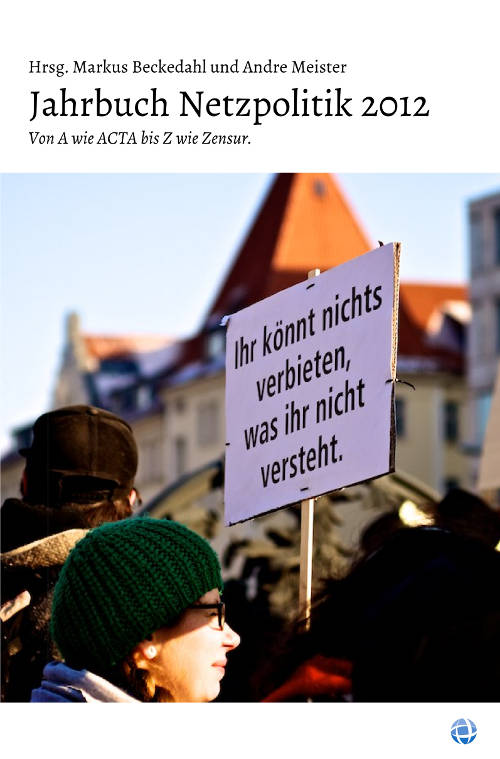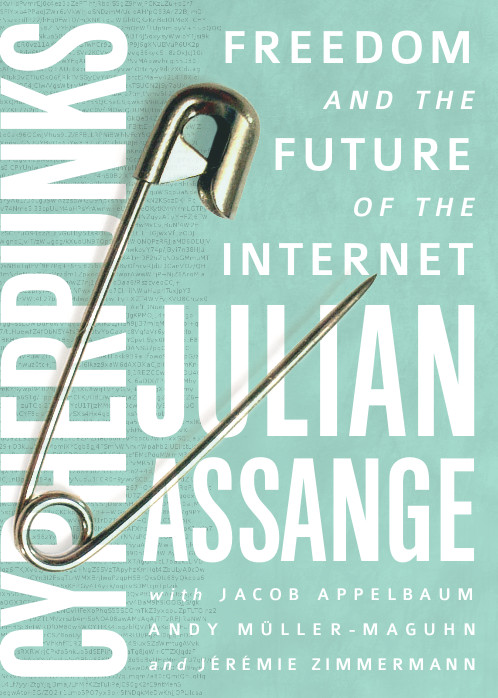Alexander Halavais: Search Engine Society (2008–)
Filed under book | Tags: · attention, attention economy, censorship, democracy, facebook, google, internet, knowledge, pagerank, privacy, search, web

“Search engines have become a key part of our everyday lives. Yet while much has been written about how to use search engines and how they can be improved, there has been comparatively little exploration of what the social and cultural effects might be. Like all technologies, search engines exist within a larger political, cultural, and economic environment. This volume aims to redress this balance and to address crucial questions such as:
* How have search engines changed the way we organize our thoughts about the world, and how we work?
* What are the ‘search engine wars’, what do they portend for the future of search, and who wins or loses?
* To what extent does political control of search engines, or the political influence of search engines, affect how they are used, misused, and regulated?
* Does the search engine help shape our identities and interactions with others, and what implications does this have for privacy?
Informed members of the information society must understand the social contexts in which search engines have been developed, what that development says about us as a society, and the role of the search engine in the global information environment. This book provides the perfect starting point.”
Publisher Polity, 2008
Digital Media and Society series
ISBN 0745642152, 9780745642154
196 pages
PDF (updated on 2019-12-5)
EPUB (2nd ed., 2017, added on 2019-12-5)
Markus Beckedahl, Andre Meister (eds.): Jahrbuch Netzpolitik 2012: Von A wie ACTA bis Z wie Zensur (2012) [German]
Filed under book | Tags: · 2012, acta, anonymous, censorship, copyright, internet, net culture, politics, privacy, surveillance, web

Netzpolitik betrifft alle, jede und jeden. Was im Jahr 2012 wichtig war, was vielleicht auch zu kurz kam, darauf blickt dieses Jahrbuch zurück. Die Autorinnen und Autoren waren Beobachter und Akteur zugleich.
Ihre Berichte in diesem Buch fassen die wichtigsten Themen des Jahres zusammen, ordnen ein und reflektieren.
Von A wie ACTA und Anonymous über Open-Data und Überwachung bis zu Urheberrecht und Z wie Zensur: komprimiert, informiert und frei lizenziert.
Mit Beiträgen von: Jan-Phillip Albrecht, Markus Beckedahl, Annegret Bendiek, Mirko Boehm, Jörg Braun, Ulf Buermeyer, Gabriella Coleman, Leonhard Dobusch, Kirsten Fiedler, Karina Fissguss, Kilian Froitzhuber, Volker Grassmuck, Johnny Haeusler, Christian Heise, Jeanette Hofmann, Jōichi ‘Joi’ Itō, Andrea Jonjic, Matthias Kirschner, Julia Kloiber, Constanze Kurz, Lawrence Lessig, Falk Lüke, Lorenz Matzat, Tim Maurer, Joe McNamee, Andre Meister, Matthias Monroy, John F. Nebel, Frank Rieger, Alexander Sander, Ben Scott, Felix Stalder, Moritz Tremmel, Ben Wagner, Stefan Wehrmeyer und Jillian C. York.
Publisher Netzpolitik.org, December 2012
Creative Commons BY-SA 3.0 Germany License
ISBN 9783844242348
270 pages
via @BiellaColeman
Julian Assange, et al.: Cypherpunks: Freedom and the Future of the Internet (2012)
Filed under book | Tags: · activism, anonymity, censorship, code, cryptography, cypherpunk, encryption, free software, hacking, internet, internet activism, politics, privacy, software, surveillance, transparency, wikileaks

Cypherpunks are activists who advocate the widespread use of strong cryptography (writing in code) as a route to progressive change. Julian Assange, the editor-in-chief of and visionary behind WikiLeaks, has been a leading voice in the cypherpunk movement since its inception in the 1980s.
Now, in what is sure to be a wave-making new book, Assange brings together a small group of cutting-edge thinkers and activists from the front line of the battle for cyber-space to discuss whether electronic communications will emancipate or enslave us. Among the topics addressed are: Do Facebook and Google constitute “the greatest surveillance machine that ever existed,” perpetually tracking our location, our contacts and our lives? Far from being victims of that surveillance, are most of us willing collaborators? Are there legitimate forms of surveillance, for instance in relation to the “Four Horsemen of the Infopocalypse” (money laundering, drugs, terrorism and pornography)? And do we have the ability, through conscious action and technological savvy, to resist this tide and secure a world where freedom is something which the Internet helps bring about?
The harassment of WikiLeaks and other Internet activists, together with attempts to introduce anti-file sharing legislation such as SOPA and ACTA, indicate that the politics of the Internet have reached a crossroads. In one direction lies a future that guarantees, in the watchwords of the cypherpunks, “privacy for the weak and transparency for the powerful”; in the other lies an Internet that allows government and large corporations to discover ever more about internet users while hiding their own activities. Assange and his co-discussants unpick the complex issues surrounding this crucial choice with clarity and engaging enthusiasm.
With Jacob Appelbaum, Andy Müller-Maguhn, and Jérémie Zimmermann
Publisher OR Books, New York/London, November 2012
ISBN 9781939293008
192 pages
Interview with Assange where he also speaks about the book (video, DemocracyNow!, 29 November 2012)
Commentary (The Guardian)
Review (Cryptome.org)
PDF (PDF)
PDF (EPUB)
PDF (MOBI)
PDF (torrent, all 3 formats)
Video of Assange’s TV show The World Tomorrow interview the book is based on, Part 1, Part 2 (Youtube.com)

